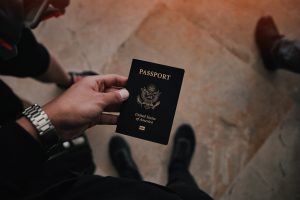Are “natural-born” U.S. citizens treated equally under the law as “naturalized” citizens? That’s a question you may be asking if you or a friend has applied for U.S. citizenship. While living in the U.S. has many benefits, the rights afforded to citizens are often the most important aspect of gaining citizenship. Fortunately, there aren’t many differences between the rights afforded to natural-born and naturalized citizens, and a denial of a citizen’s basic rights is a violation of the United States Constitution.
What’s a “natural-born” citizen?
Other than in extremely limited circumstances, anyone born in the United States is considered a “natural-born citizen.” This means they are automatically considered citizens, even if their parents are not citizens. Natural-born citizens do not have to apply for citizenship and have the same rights as anyone else. Natural-born citizens may be eligible for dual-citizenship, meaning they will share the citizenship of their parents and their own U.S. citizenship. Unlike other categories of citizens, only natural-born citizens can run for President or Vice President. This is the only difference in rights afforded to natural-born citizens compared to naturalized citizens.
What is a “naturalized” citizen?
A naturalized citizen is someone who has lawfully lived in the United States for at least five years and has become a U.S. citizen through a formal immigration application process called Naturalization. Anyone who has successfully completed the Naturalization process is afforded all of the rights of natural-born citizens. While naturalized citizens may run for public office, such as mayor, school-board, or city council, they may not run for the office of President or Vice President of the United States. This right is afforded only to natural-born citizens. However, natural-born citizens may apply for federal jobs requiring citizenship.
What are the most important rights afforded to all citizens?
It does not matter if you are a natural-born or naturalized citizen, the Constitution applies to you and grants broad and substantial rights that are taken seriously. Some of the most important rights stem from your ability to exercise freedom of speech and worship (or not) how you see fit. The government is prohibited from censoring its citizens in most cases, and cannot dictate what religion you practice. Along with this right is the right to vote. As a U.S. citizen—naturalized or natural-born—you have the right to vote in city, state, and federal elections. This means you can vote for the mayor of your city, the governor of your state, and the president of the United States. All citizens also have the right to own property and are entitled to a fair and impartial trial by jury should they get arrested. The rights of naturalized citizens are vast and important and should not be treated as lesser simply because they were born outside of the United States.
Conclusion
If you are seeking U.S. citizenship through the Naturalization process, let us help you prepare for what is a lengthy and complex process. Our attorneys can help you attain your dreams of citizenship and help evaluate your case. Get in touch with us today.








